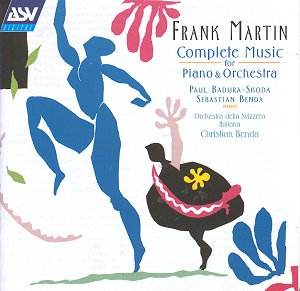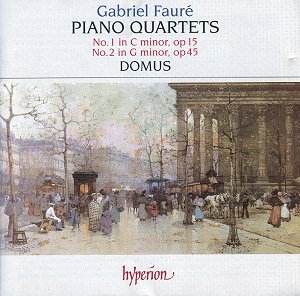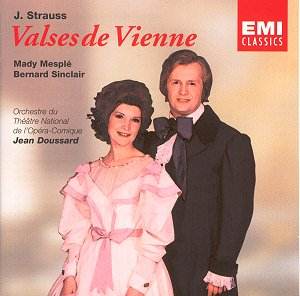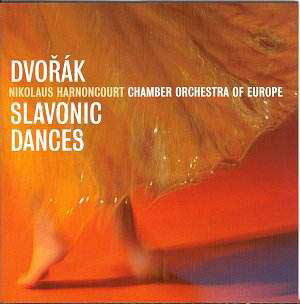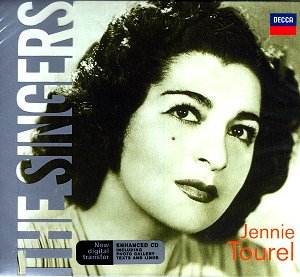 Composer: Jennie Tourel
Composer: Jennie Tourel
Works: Selections from operatic arias and songs by Gluck, Rossini, Bizet, Rachmaninov, Tchaikovsky, Grechaninov, and others
Performers: Jennie Tourel (mezzo-soprano), Paul Ulanovsky & Brooks Smith (piano)
Recording: DECCA 467 907-2
Label: Decca
The release of this recording featuring Jennie Tourel, a remarkable mezzo-soprano whose career spanned pivotal moments in 20th-century operatic history, provides a rich opportunity to revisit her artistry and situate her within the broader context of classical vocal performance. With roots tracing back to her Russian origins and a career blossoming through Paris to New York, Tourel’s interpretations reflect both a deep understanding of the operatic tradition and an innovative spirit, particularly in her commitment to character-driven performance. This disc, drawn from her earlier LP recordings, offers a glimpse into her vocal prowess and artistry, as well as the unique soundscape of a mid-century era.
The first half of the disc features previously unpublished songs by Rossini, composed for the Venice Regatta, showcasing the vivacity and charm inherent in Tourel’s voice. Her mezzo-soprano possesses a rich lower register that is especially captivating, providing a warmth that is both inviting and expressive. The clarity of her tone is complemented by the pianistic contributions of Ulanovsky and Smith, whose accompaniments remain attentive and supportive. However, it is the second half, featuring Russian repertoire, that truly reveals the dramatic capabilities of her voice. Here, Tourel’s interpretation gains depth; her phrasing becomes more nuanced, allowing for emotional crescendos that resonate powerfully with the listener. The contrast between the stereo and mono recordings is worth noting, with the former offering a more immediate presence that enhances her expressive range, while the latter, though slightly more constricted, still conveys her dramatic intent convincingly.
Technical aspects of the recording are commendable, with a forward balance that allows Tourel’s voice to shine. The engineering captures the subtleties of her timbre and the interplay with the piano, though one may yearn for a more detailed account of recording dates and contexts, which remain frustratingly vague. The clarity of sound allows for the intricate details of her interpretations to emerge, particularly in her ability to shape phrases with both power and delicacy. While contemporary listeners might draw comparisons with the likes of Olga Borodina, whose dramatic interpretations are well documented in modern recordings, it is important to acknowledge that Tourel’s artistry emerges from a different historical milieu. She is less about sheer vocal heft and more about the storytelling intrinsic to the character she portrays—an element that is sometimes lost in modern performances that prioritize vocal acrobatics over narrative.
The accompanying booklet, penned by the late John Ardoin, provides valuable insights into Tourel’s life and career, though it occasionally lacks the depth that would further illuminate the specific operatic contexts of her selections. Ardoin’s enthusiasm for the singer shines through, yet greater detail regarding the operatic characters represented in the arias would enhance the listening experience, providing a more comprehensive understanding of her interpretative choices.
Tourel’s contributions to the operatic repertoire, particularly her role in the creation of Stravinsky’s Baba the Turk, illustrate her versatility and the innovative spirit she brought to her roles. The recording serves as a testament to her legacy, capturing not just a voice, but a distinctive artistic vision that transcends mere notes on a page. While this disc may not be as readily available as other notable recordings, it is an essential artifact for those seeking to understand the evolution of the mezzo-soprano voice and its rich history within the operatic tradition.
Jennie Tourel’s artistry, as showcased in this recording, reflects a profound commitment to the expressive capabilities of the human voice, illuminating the nuanced interplay between character and interpretation. Her ability to navigate both the lyrical and dramatic facets of her repertoire serves as a powerful reminder of the artistry that shaped the classical landscape in the 20th century. This recording resonates as a significant historical document, capturing the essence of an artist who was not only a consummate performer but also a storyteller of remarkable depth.
